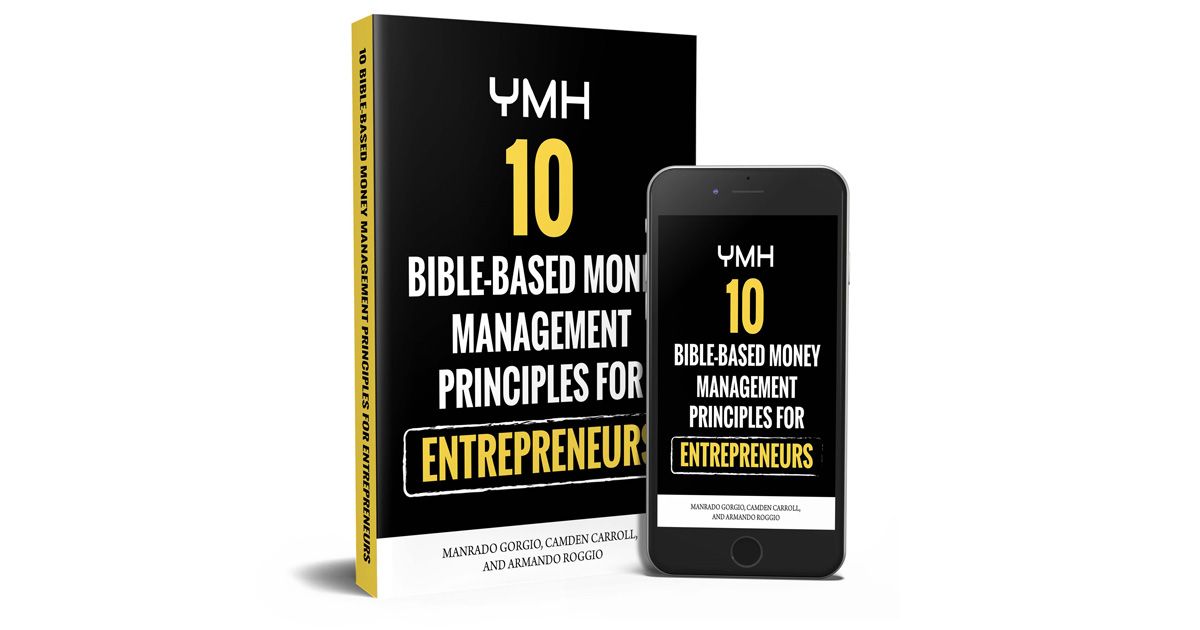The Principle of Contentment
Contentment is not complacency but a path to purpose and fulfillment in your entrepreneurial journey. Find balance and fulfillment as you work towards growth and celebrate the blessings along the way.

Contentment is being satisfied with what we have and not desiring more.
It's an essential principle for entrepreneurs because pursuing wealth and success can often lead to a never-ending cycle of wanting more and never being satisfied with what we have.
The Apostle Paul wrote about contentment in his letter to the Philippians, saying, "I have learned in whatever situation I am to be content. I know how to be brought low, and I know how to abound. In any and every circumstance, I have learned the secret of facing plenty and hunger, abundance and need" (Philippians 4:11-12, ESV).
Paul's words remind us that contentment is a learned behavior and that it's possible to be content in any situation, whether we have plenty or are in need. As entrepreneurs, it's easy to fall into the trap of always wanting more, believing that more success, money, or possessions will make us happier. However, the pursuit of wealth and success can lead to a lack of contentment, which can, in turn, lead to anxiety, stress, and a sense of never being satisfied.
One way to apply the principle of contentment in our lives as entrepreneurs is to focus on gratitude. Gratitude is intentionally focusing on what we have rather than what we lack. When we practice gratitude, we shift our focus from what we don't have to what we do have, which can lead to greater contentment and peace.
Another way to apply the principle of contentment is to set realistic goals for our businesses and finances. It's important to have aspirations and to work hard to achieve them, but it's equally important to recognize that success doesn't always come overnight. By setting realistic goals and celebrating small victories along the way, we can cultivate a sense of contentment in our entrepreneurial journey.
Ultimately, the principle of contentment reminds us that true satisfaction and fulfillment come not from material possessions or success but from a sense of purpose, belonging, and gratitude. By embracing this perspective and learning to be content in all situations, we can find peace, joy, and meaning in our lives as entrepreneurs.
Here is a word of warning. Contentment is not complacency. This money-management principle should not stop you from working hard and growing a business.
Perhaps the most frequently used example of this idea that contentment is not complacency comes from the Parable of the Talents.
"For it will be like a man going on a journey, who called his servants and entrusted to them his property. To one he gave five talents, to another two, to another one, to each according to his ability. Then he went away. He who had received the five talents went at once and traded with them, and he made five talents more. So also he who had the two talents made two talents more. But he who had received the one talent went and dug in the ground and hid his master's money. Now after a long time the master of those servants came and settled accounts with them. And he who had received the five talents came forward, bringing five talents more, saying, 'Master, you delivered to me five talents; here, I have made five talents more.' His master said to him, 'Well done, good and faithful servant. You have been faithful over a little; I will set you over much. Enter into the joy of your master.' And he also who had the two talents came forward, saying, 'Master, you delivered to me two talents; here, I have made two talents more.' His master said to him, 'Well done, good and faithful servant. You have been faithful over a little; I will set you over much. Enter into the joy of your master.' He also who had received the one talent came forward, saying, 'Master, I knew you to be a hard man, reaping where you did not sow, and gathering where you scattered no seed, so I was afraid, and I went and hid your talent in the ground. Here, you have what is yours.' But his master answered him, 'You wicked and slothful servant! You knew that I reap where I have not sown and gather where I scattered no seed? Then you ought to have invested my money with the bankers, and at my coming I should have received what was my own with interest. So take the talent from him and give it to him who has the ten talents. For to everyone who has will more be given, and he will have an abundance. But from the one who has not, even what he has will be taken away. And cast the worthless servant into the outer darkness. In that place there will be weeping and gnashing of teeth.' (Matthew 25:14–30, ESV)
In this parable, Jesus tells us about being prepared for his second coming. That is the main point. But it is not a stretch to note that this parable also tells us how to wait.
On its website, Ligonier Ministries put it this way, "the parable of the talents makes it plain that the waiting and preparation Jesus expects is ethical and active. We must work, putting our gifts to use for His glory."
"A faithful servant," the Ligonier article continues, "in the ancient Near East often became a steward over his master's household and could be entrusted with enormous resources. This is the background for the parable of the talents; even the servant who is given one talent is entrusted with much as one talent is equivalent to twenty years of pay for a first-century day laborer."
Ok, let's bring this idea home. We need to be content but active. We must focus on and be pleased with the blessings God provides, but we are also doing our best in work to grow.
Contentment is not about being complacent or lazy but about finding balance and fulfillment in our entrepreneurial pursuits.

10 Bible-Based Money Management Principles for Entrepreneurs
This article is a reprint of a chapter in a 32-page e-book. In this e-book, you will find ten principles grounded in the Bible and relevant to personal nance and entrepreneurship. Each principle is briefly explained and includes practical tips or examples to help you apply it to your life and business.